The Tragic Roots of America’s Favorite Cherry
The Chinese Exclusion Act likely exiled the man who first cultivated it.

“Cherry red” is a bright, fire-engine color. But for most Americans, their cherries are dark. Deep red, nearly purple, the cherries in the supermarket are sweet, glistening, and big. This kind of cherry—the Bing cherry—is America’s most produced variety. But the man who helped propagate it, a Chinese foreman named Ah Bing, is largely forgotten. An accomplished representative of the Chinese workers and immigrants who labored to establish orchards in the American West, he also faced all-too-typical persecution: His time in the United States was cut short by racism.
Not much is known about Ah Bing. What is known of him comes from Florence Olson Ledding, a lawyer and the step-daughter of Ah Bing’s employer, Seth Lewelling. The Lewellings were a Quaker farming family with strong abolitionist sentiments. Before the Civil War, Lewelling’s brother Henderson built a home in Iowa known as “the main ticket office for the underground railroad”: trapdoors and tunnels still dot the house. But in the mid 1800s, the Lewellings headed west with 700 fruit trees. Their journey echoes a grueling game of Oregon Trail, yet no one died. When Henderson arrived in Milwaukie, Oregon, he established the West Coast’s first nursery, where Seth soon joined him.

At the time, Oregon’s population was booming. Some settlers were looking for post-Gold Rush opportunities, while others had their eyes on the Pacific Northwest’s rich farmland and resources. With their hundreds of trees, the Lewellings established a thriving nursery business. Henderson Lewelling soon peeled off to Honduras (to start an ill-fated utopian colony), but Seth stayed, putting down deep roots. The Lewelling orchards of prunes, apples, and cherries kickstarted Oregon’s fruit-growing industry.
Oregon was flourishing, but needed labor. All across the West, Chinese workers were building train tracks and working mines, orchards, and farms. But they were always paid less, and their industriousness was denigrated as hurting American wages and stealing jobs. It was in the American West, writes immigration historian Erika Lee, that “arguments in support of Chinese exclusion arose.”
In 1882, the federal government passed the Chinese Exclusion Act, which barred the immigration of Chinese laborers for decades to come. Meanwhile, violence against Chinese immigrants flourished in the Pacific Northwest. In 1885, city leaders in Tacoma, Washington, became local heroes for driving the Chinese population out of town and burning their homes. Two years later in Oregon, 34 Chinese miners were murdered in the Hells Canyon Massacre, and the culprits were never punished.
At the time, Ah Bing worked on Seth Lewelling’s farm. Sarah Ledding described him in detail to a Federal Writer’s Project interviewer in 1939: He was more than six feet tall and of Manchu descent, hailing from the north of China. Both his height and background, added Ledding, made him “very unlike” the majority of Chinese immigrants, who mainly came from the more southern Guangdong province. Ah Bing worked for Lewelling for more than 30 years, sending money back to his wife and several children in China. Ledding remembered him often singing a popular song of the day, but in a mournful minor key.
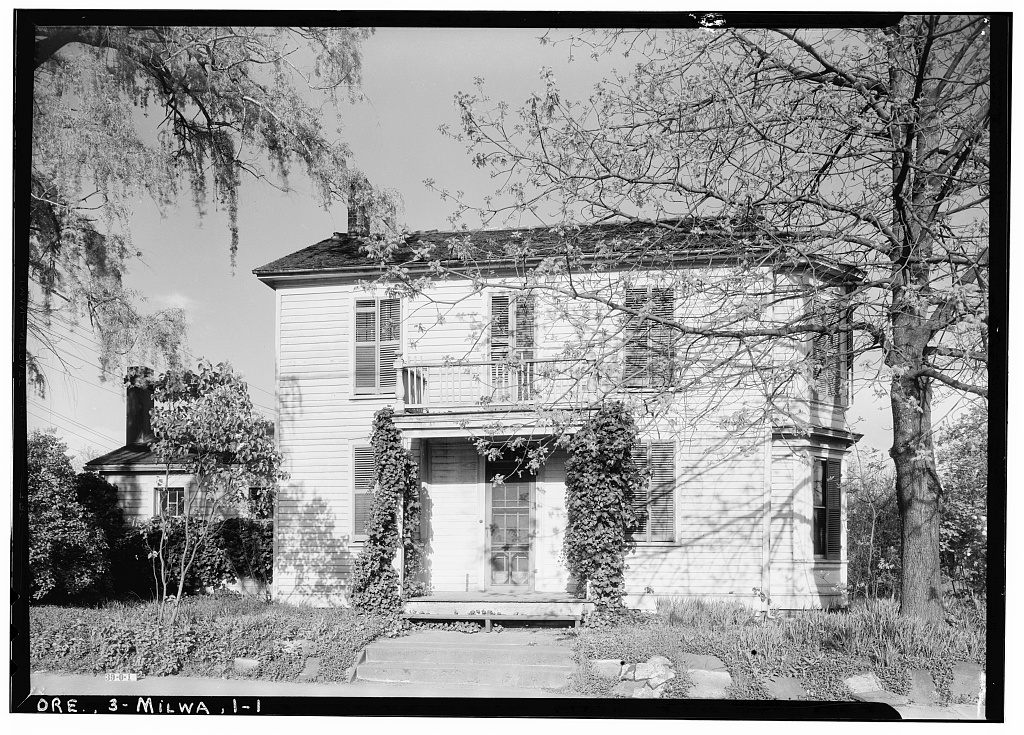
As the foreman of Lewelling’s orchard crew, Ah Bing supervised more than 30 men. He worked closely with Lewelling on grafting, propagating, and caring for trees. The Bing cherry, Ledding recalled, surfaced one day when Lewelling and Ah Bing walked through the rows of cherry trees, where each man maintained separate rows. In Ah Bing’s row, there was a marvelous new type of cherry. Someone suggested that Lewelling name the cherry after himself. But Lewelling protested. He had already named a cherry for himself. “No, I’ll name this for Bing,” Ledding recalled him saying. “It’s a big cherry and Bing’s big, and anyway it’s in his row, so that shall be its name.”
But other stories portray Ah Bing as even more central to the development of the cherry. In 1922, the agricultural journal The Oregon Grower related that Lewelling had assigned a collection of “Black Republican” cherry seedlings to Ah Bing to care for in 1875. Ah Bing’s cultivation resulted in the Bing cherry, which, the author commented, would “pass his name down in horticultural history.”

The cherry went on to win prizes and sell for the princely sum of a dollar a pound. But Ah Bing’s contribution couldn’t save him from American racism. During the years of violent anti-Chinese riots, Lewelling sheltered Ah Bing and his other Chinese workers in his home. Perhaps it was the fevered environment that spurred Ah Bing to visit his family. But he also longed for home. “Bing was always talking about his family,” Ledding said. In 1889, he returned to China for a visit. While the Chinese Exclusion Act had already passed, legislators actively plugged loopholes and made it even more restrictive. Ah Bing never returned to the U.S., and Ledding, years later, blamed the Chinese Exclusion Act.
The rest of Ah Bing’s story is lost to history. After working for decades in the United States, perhaps he wanted to stay in his homeland, where he wouldn’t be threatened due to his race. It’s equally likely, though, that he tried to return, and was rejected. But Americans encounter his legacy every day, just by seeing the name “Bing” on their bags of cherries.
Gastro Obscura covers the world’s most wondrous food and drink.
Sign up for our email, delivered twice a week.





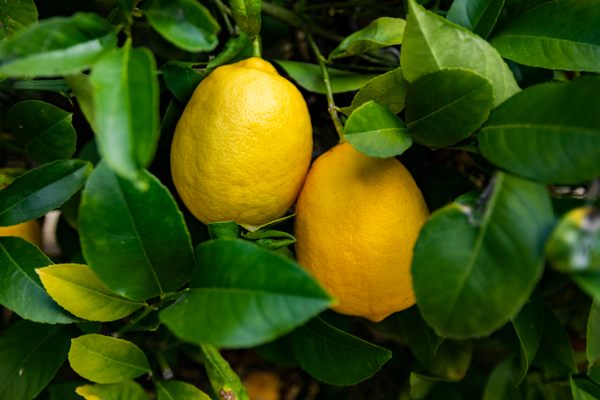
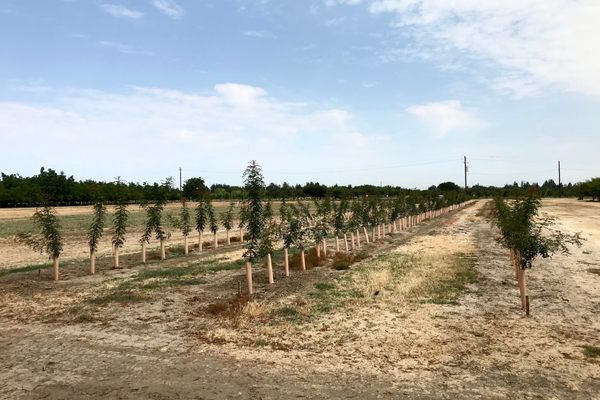

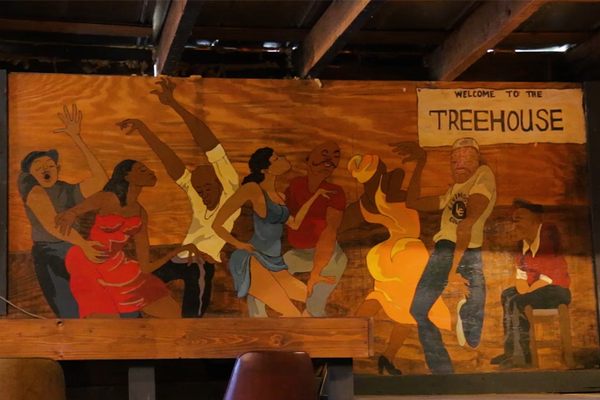

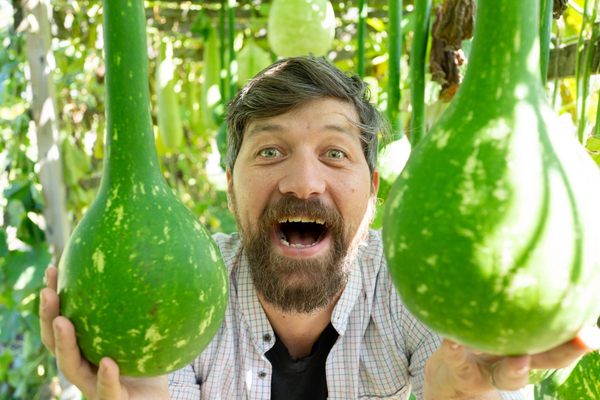




















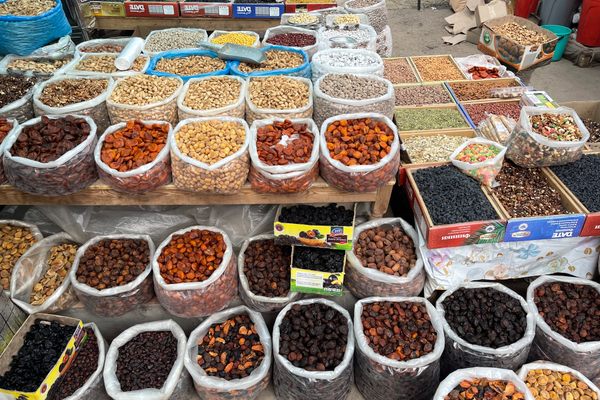





Follow us on Twitter to get the latest on the world's hidden wonders.
Like us on Facebook to get the latest on the world's hidden wonders.
Follow us on Twitter Like us on Facebook